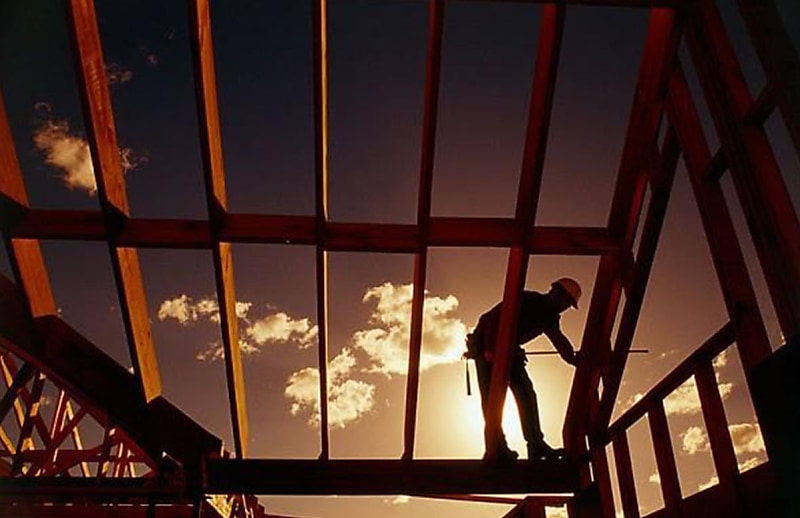The number of dwellings approved fell 8.1 per cent in July in the second consecutive monthly decline as construction insolvencies run at four times the rate of two years ago, the latest ABS and ASIC data shows.
ABS head of construction statistics Daniel Rossi said the fall in the total number of dwellings approved was driven by a decrease in private sector dwellings excluding houses, which 15.8 per cent, following a 21.9 per cent fall in June.
You’re out of free articles for this month
“Approvals for private sector houses remained flat, following a 1.0 per cent fall in June,” said Mr Rossi.
Total dwelling approvals fell in most states with approvals falling 18.3 per cent in Victoria, 5.5 per cent in Queensland, 5.2 per cent in Western Australia, 4.7 per cent in NSW and 2.6 per cent in South Australia. Tasmania saw a 39.5 per cent increase after falling 36.6 per cent in June.
The value of total building approvals fell 16.9 per cent, after a 7.2 per cent June increase. The value of total residential buildings fell 4.4 per cent.
CreditorWatch chief economist Anneke said dwelling approvals have continued to fall in Australia and are now down to levels not seen since 2013.
The ABS data indicated that total dwelling units approved were down 10.6 per cent over the year to July 2023.
“Approvals of non-house dwellings [such as] apartments and units show no sign of recovery, as very high building costs, a lack of building capacity and a lack of buyers being able to obtain finance weighs heavily on the sector,” said Ms Anneke.
The decline in building approvals is also a worrying sign for housing affordability, said Ms Thompson as building approvals provide an indication of housing supply around one year in advance.
ABS data on construction work done did however show an increase in building and construction activity.
Total construction work done rose 0.4 per cent to $59,010.6 million. Building work done rose 0.2 per cent to $31,459.8 million, while engineering work done rose 0.7 per cent to $27,550.8 million.
However, the increase in construction work was still below consensus expectations of a 0.9 per cent rise, according to AMP deputy chief economist Diana Mousina.
“We expect next week’s June quarter GDP figures to show a rise by 0.4 per cent or 1.8 per cent over the year – which is quite slow,” said Ms Mousina.
Insolvencies are also on the rise in the construction sector with ASIC company statistics released this week showing increasing rates of construction companies entering insolvency.
The ASIC statistics indicate that 442 companies in the construction industry had entered external administration or had a controller appointed as of 13 August 2023.
This is more than four times the number of insolvencies for the same period in the 2021-22 financial year. It is also a 49 per cent increase from the same period in the 2022-23 year.
Master Builders said with many builders facing economic challenges at the moment, it was crucial that building businesses get the right advice and support.
“Accountants and other professional service providers can offer business and financial support and advice, while government agencies like Service NSW for Business can assist with navigating government supports and license requirements and offer business advice,” the association said in a recent release.
CPA Australia’s Senior Manager, Business and Investment Policy, Gavan Ord said that many business owners only re-engage with accounting professionals when it’s too late, when their business is insolvent, and the only option is liquidation.
“We surveyed small businesses from 2020 to 2022 and found that more than three-quarters (77 per cent) of small businesses who did not seek advice either shrank or did not grow,” said Mr Ord.
“We know that many builders are great at the technical aspects of their jobs but often neglect the planning and running of their business or rely on a family member to assist, and this can place their business at risk.”
Mr Ord said that businesses that do seek professional advice early and regularly are more likely to survive and grow.
“The earlier businesses in difficulty engage, the more options there are to save their business or to exit with dignity and start afresh. This is particularly important in the current economic climate,” he said.

 Login
Login






